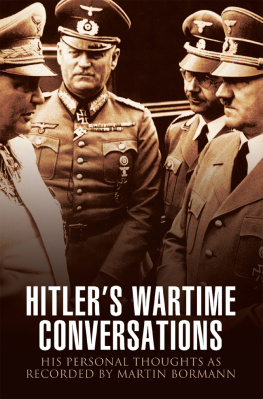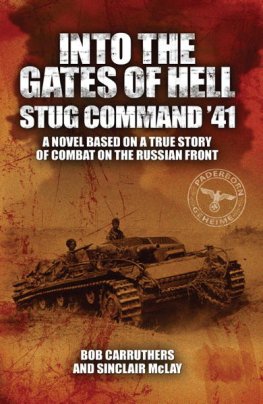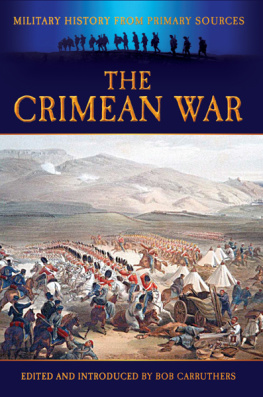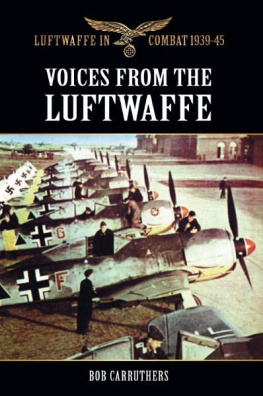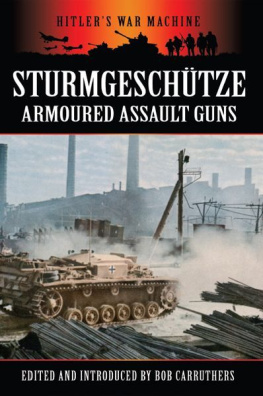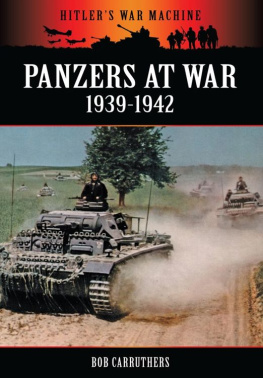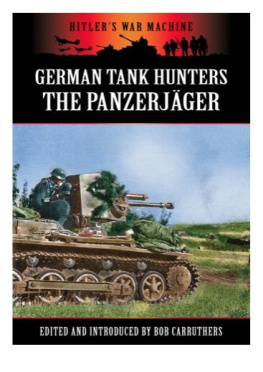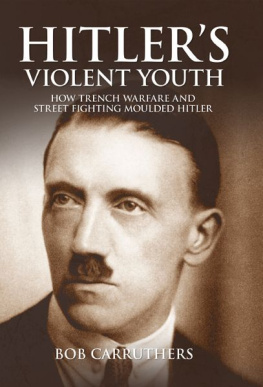This edition published in 2015 by
Pen & Sword Military
An imprint of
Pen & Sword Books Ltd
47 Church Street
Barnsley
South Yorkshire
S70 2AS
Copyright Coda Books Ltd.
Published under licence by Pen & Sword Books Ltd.
ISBN: 9781473833517
EPUB ISBN: 9781473859647
PRC ISBN: 9781473859630
A CIP catalogue record for this book is available from the British Library.
All rights reserved. No part of this book may be reproduced or transmitted in any form or by any means,
electronic or mechanical including photocopying, recording or by any information storage and retrieval
system, without permission from the Publisher in writing.
Printed and bound in England
By CPI Group (UK) Ltd, Croydon, CR0 4YY
Pen & Sword Books Ltd incorporates the imprints of Pen & Sword Aviation, Pen & Sword Family
History, Pen & Sword Maritime, Pen & Sword Military, Pen & Sword Discovery, Pen & Sword Politics,
Pen & Sword Atlas, Pen & Sword Archaeology, Wharncliffe Local History, Wharncliffe True Crime,
Wharncliffe Transport, Pen & Sword Select, Pen & Sword Military Classics, Leo Cooper, The Praetorian
Press, Claymore Press, Remember When, Seaforth Publishing and Frontline Publishing
For a complete list of Pen & Sword titles please contact
PEN & SWORD BOOKS LIMITED
47 Church Street, Barnsley, South Yorkshire, S70 2AS, England
E-mail:
Website: www.pen-and-sword.co.uk
INTRODUCTION
A S A RESULT of the terrible tragedy which befell the Jewish people of Europe, the name Adolf Hitler will forever be synonymous with the creed of extreme anti-Semitism. Due to the inhuman scale of the suffering endured by the Jewish population, genocide is commonly assumed to have been his primary goal and the overriding concern of Adolf Hitler. However, the sobering truth is that, although anti-Semitism was a potent factor in the mix of ideas that shaped Hitlers weltanschauung (or world view), it was not the key to his lifes work. From his own account as published in the pages of Mein Kampf we can be certain that, in his own eyes at least, Hitlers lifes work was in fact the accomplishment of his pan-German nationalist vision. From a surprisingly early age this political goal was his overwhelming priority and we can be certain that nationalism was the key stimulus on the formation of Hitlers political outlook. Nonetheless, it is the terrible human cost of the Hitlerian regime which continues to demand an explanation today. How did a civilised nation, so much like our own in so many respects, allow itself to be dragged into such an abyss of barbarism?
The answer lies with this peculiar and enigmatic individual. Hitler was a mass of paradoxical contrasts. He was an extremist in every sense of the word and there is no doubt he was extremely gifted in the art of oratory and could command the adoration of a nation; yet he was also naive, boorish, nervous and gauche. He possessed a genius when it came to grand concepts and presentation, and he knew how to excite the passions of an entire nation and to galvanise organisations into action, yet he was utterly incapable of empathising with his fellow human beings. Human rights were an alien concept for Adolf Hitler, yet ironically he was a genuine aesthete who, within his own narrow bounds, lived for opera, music, art and architecture. However, it is notable that none of the liberal values, which colour the arts, were allowed to permeate his world. He espoused only the most conservative and radical solutions to political and social issues.
The most marked trait of Hitler in power was his belief that every strategic or political issue could only be settled by precipitate military action. Hitler had developed this mind-set in the trenches of the Great War and the vicious rough and tumble of the beer halls, and the street fighting of the twenties and thirties added the finishing touch. Despite the fact that these early experiences are absolutely essential to understanding the motivations which led Adolf Hitler to do what he did, historians all too often overlook these vital formative experiences. During the early part of the twentieth century millions of young men had been exposed to a world of violence in the trenches of France and Belgium. However, the Great War marked the young Adolf Hitler in a fundamental and far-reaching manner that is all too readily disregarded. Hitler was an extraordinarily driven individual who was already an ideologue before he reached the trenches, and his embryonic political aspirations were further nurtured in the mud of Flanders. It was here that his life-long love of militarism and his instinctive willingness to take risks was matched by an inherent joy in the process of violence. Hitler perceived the dismal business of making war not as a destructive activity, but as an instrument of social progress and his experience in the trenches did nothing to persuade him away from that view.
From his involvement in the Great War Hitler emerged more convinced than ever that every problem, regardless of the odds to be overcome, could be solved by a sudden and decisive act. In his fledgling political career he fully embraced that philosophy and as a result, he was to come unstuck in the Munich Beer Hall Putsch of November 1923, being imprisoned in a fortress for his pains. However Hitler remained undaunted and, from the night of the long knives onwards, he achieved a string of political and military victories created by a cocktail of brinkmanship, surprise, treachery and violence. His gamblers instinct was rewarded by such an unbroken string of success stretching from the Sudetenland to the gates of Moscow that he came to believe that, no matter how disproportionate the odds stacked against Germany, they could always be overcome by unexpected and decisive action backed by an iron resolve. This unshakable belief was to lead Germany down the path to ruin, dishonour and ignominy.
Despite the fact that Hitler could produce immense energy he was also extremely lazy and unfocused. This trait manifested itself in the fact that he was generally willing to abrogate responsibility for large areas of government policy. He also had the unfortunate habit of delegating the same responsibility to multiple and competing functionaries. In this haphazard way he would let matters take care of themselves. Hitler viewed the apparatus of the state and its functionaries (for which he used the catch-all term the Reich) as an organic mechanism which would deliver solutions to many of the issues of the day. For Adolf Hitler the Reich was indeed a machine which needed no operator. It is shocking to realise that the awful human catastrophe inflicted upon the Jews was not even his paramount concern, but unhappily this is indeed the case.
This new book revisits this important area of study by combining the revised and updated findings of two earlier books which were previously published as separate volumes. Those volumes were Private Hitlers War which dealt with his military experiences in the Great War and Hitlers Demons which dealt with the social and political factors influencing his development. In retrospect it was a mistake to separate the military experience from the civilian social influences operating on Adolf Hitler. In order to produce a more coherent portrait of the disparate factors at work on Hitler, I have revised and combined those two separate strands into one work. This single volume hopefully encapsulates all of the most important issues affecting Hitlers formative years and brings them together in a single volume. In order to let the historical record speak I have relied extensively on lengthy quotations from Hitlers own version of events as published by him in the pages of Mein Kampf


